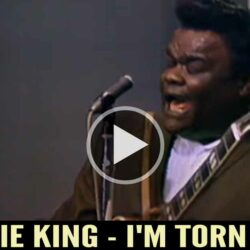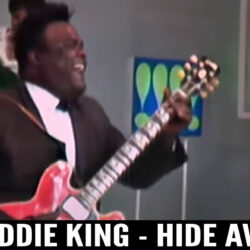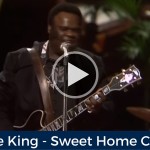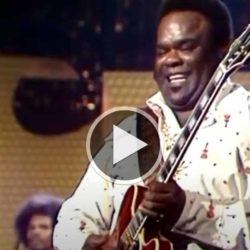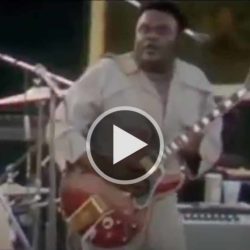Freddie King
Freddie King (born September 3, 1934, in Gilmer, died December 28, 1976, in Dallas) is an American blues musician.
Like many other bluesmen of his time, he began his career in Chicago. He playing in the groups of Little Sonny Cooper and Hound Dog Taylor. Probably under the influence of Taylor, he developed his specific style of playing blues on an electric guitar.
King’s best-known songs are recorded in the early 1960s. “Hide Away” and “Have You Ever Loved a Woman?”. As well as the Burglar album released in 1974. “Hide Away”. This title derives from the name of the popular Chicago bar. The song was repeatedly recorded and performed, including by Eric Clapton, Stevie Ray Vaughan, and Jeff Healey.
The guitarist died of a heart attack in 1976 during a concert tour, which he played with Clapton, only three days after his last concert.
Freddie Playing style and technique
King was characterized by a specific style of playing the guitar, using a plastic thumb pick and a metal index-finger pick. He learned this technique from Jimmy Rogers.
His mother and uncle began teaching him to play the guitar when he was six years old. In 1950, he and his family immigrated from Texas to the South Side of Chicago. In 1952 he married Jessie Burnett.
When he was 16, he visited local clubs where he listened to blues music performed by Muddy Waters, Howlin ‘Wolf, T-Bone Walker, Elmore James, and Sonny Boy Williamson. King played with Muddy Waters, Eddie Taylor, Jimmy Rogers, Robert Lockwood, Jr., and Little Walter.
King had a twenty-year recording career and became an influential guitarist. He inspired many British musicians of the 1960s who revitalized the blues, such as Eric Clapton, Chicken Shack, and Peter Green, and American musicians such as Stevie Ray Vaughan, Jimmie Vaughan, Bill Freeman, and Denny Campbell.
King died of heart failure on December 28, 1976, at the age of 42. A testament to King’s presence in the world of American rock bands is found in the Grand Funk Railroad song “We’re an American Band” written by Don Brewer and is based on an incident that occurred to King at a tour.

